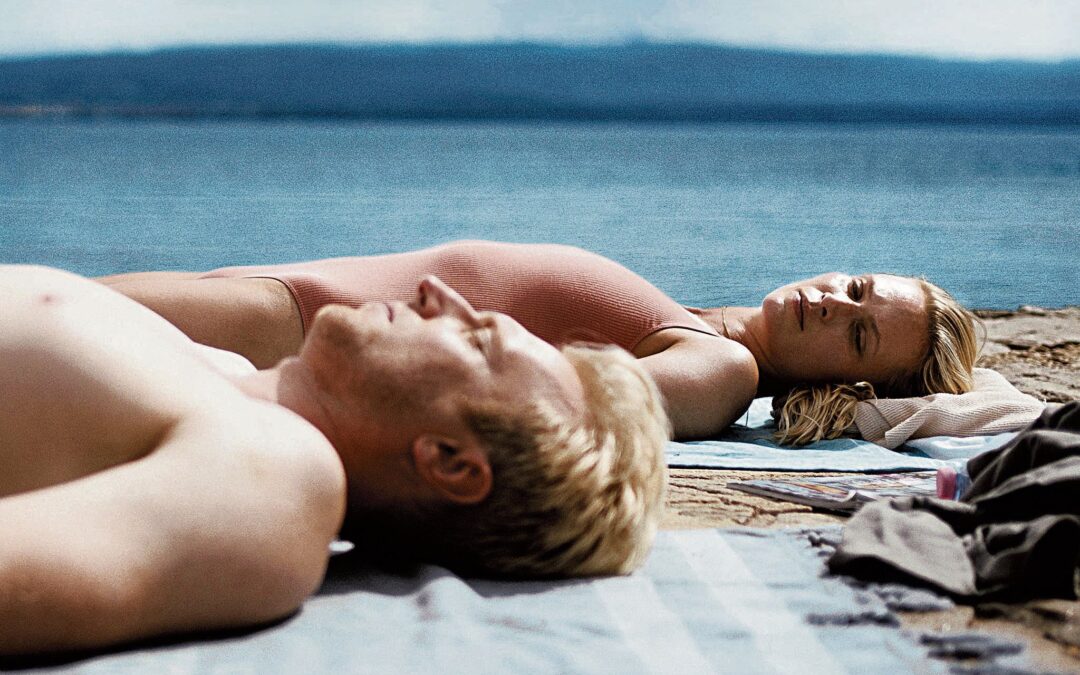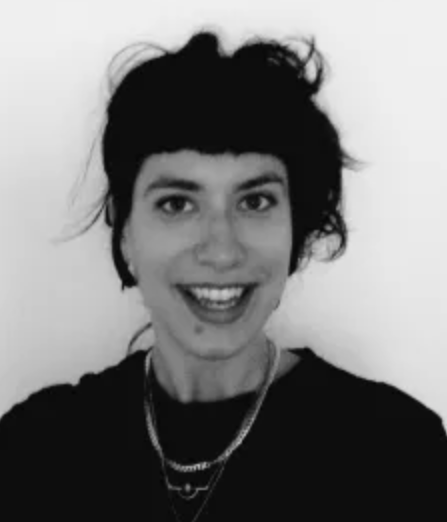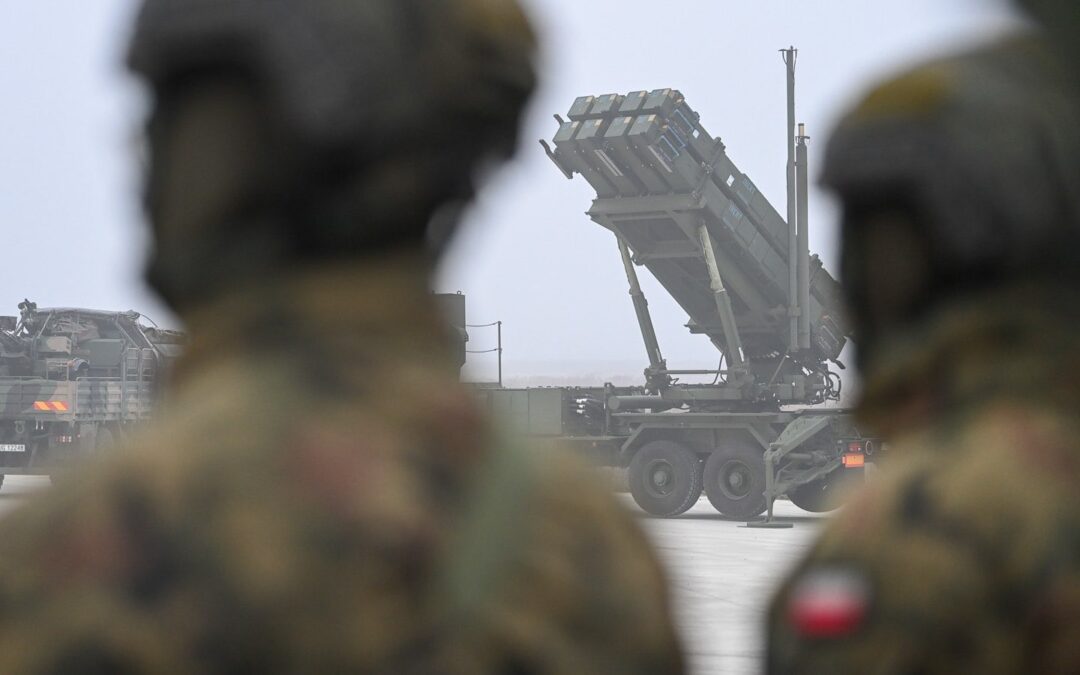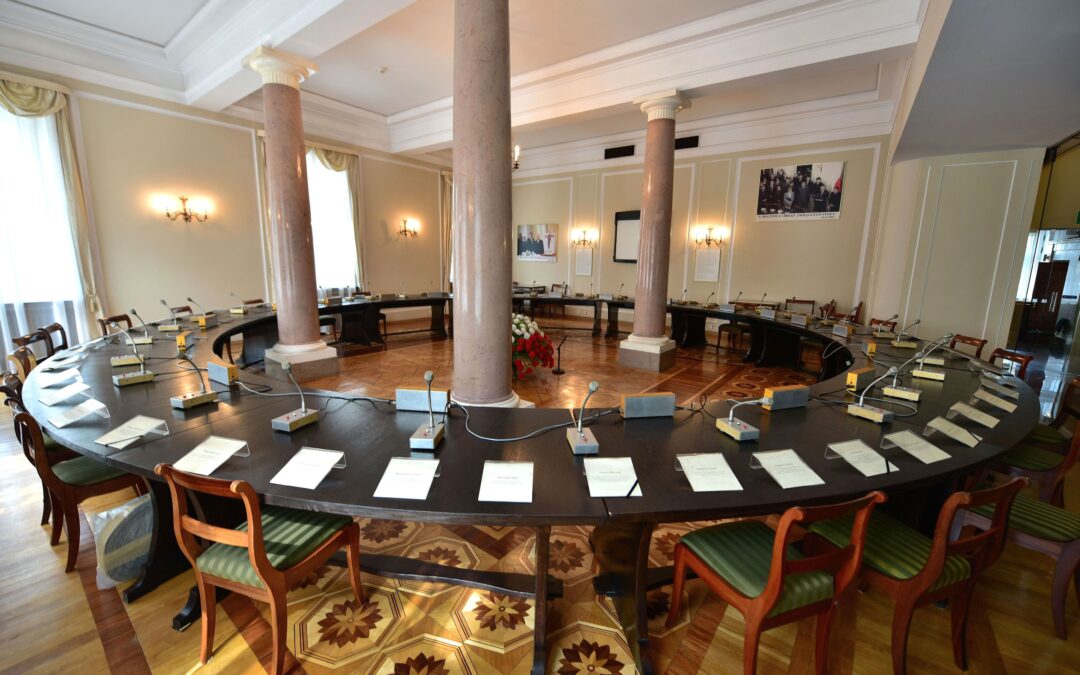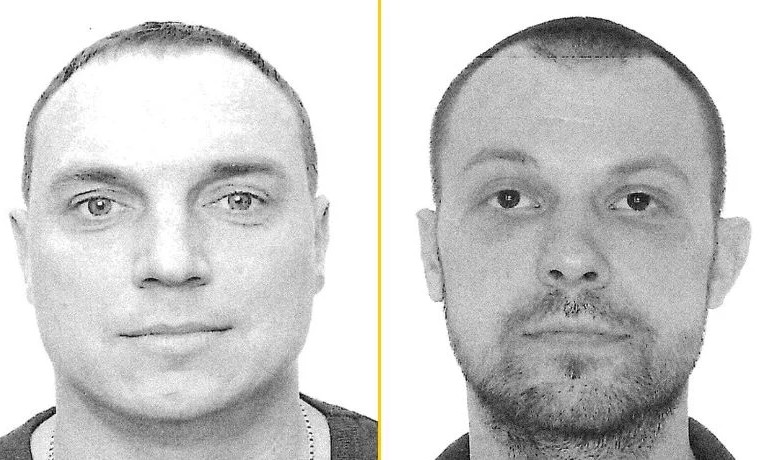By Isabel Jacobs
Agnieszka Holland’s acclaimed Green Border (2023) premiered last Friday in the UK and US. The director’s latest film is a chilling drama that interweaves the stories of migrants stranded in the forested exclusion zone on the Poland-Belarus border with those of border officials and activists.
Holland directed only a handful of films in Poland, including her debut feature Provincial Actors (1978), before leaving for France in 1981, shortly ahead of the imposition of martial law in her home country.
As an émigré, she wrote scripts for fellow directors in exile and worked on numerous films in Europe and, later, Hollywood. She is renowned for Europa Europa (1990), based on the story of a German-Jewish boy who survived the Holocaust in the Hitler Youth, and In Darkness (2011), about two sewage workers in Nazi-occupied Lwów.
Now aged 75, Holland is arguably the best-known living Polish director – and certainly the country’s most famous female director. She is, however, just one of many women filmmakers in the history of Polish cinema.
Here are ten must-watch films by Polish women directors, from an interwar avant-garde short to contemporary queer cinema.
Franciszka Themerson: Europa (1931)
Until its spectacular rediscovery, Franciszka Themerson’s experimental film Europa (1931), co-directed with her husband Stefan, was believed to be lost. Restored and premiered in 2021, the anti-fascist short is among the first and most important Polish avant-garde films.
Europa is a dystopian stream of images of war and ecological disaster, fused with surrealist shots of plants, legs, a piano, bread and a beating heart. It was produced in the couple’s bedroom and cut on the kitchen table, filmed with a borrowed camera and no budget.
Having left for France in 1938, Themerson (née Weinles) began working as a cartographer for the Polish government-in-exile before fleeing to London where she co-directed the anti-war film Calling Mr Smith (1943).
Agnieszka Smoczyńska: Fugue (2018)
Agnieszka Smoczyńska’s second film is a psychological thriller about a young woman who has mysteriously lost all memory of her past life.
Recognised on TV by her husband Krzysztof (Łukasz Simlat), Alicja (Gabriela Muskała) returns to her family in Lower Silesia, where she becomes intrigued by her life before the amnesia. Her husband and their five-year-old son Daniel (Iwo Rajski), who know her as Kinga, are familiar strangers.
Blurring the boundaries between magical and real, Fugue is a feminist reflection on identity crisis and domesticity. Alicja’s disappearance into the wilderness is an escape from the duties of family and motherhood and a search for happiness. What if we left our life behind and then returned to it as a stranger?
Natalia LL: Consumer Art (1972–1975)
Girls just want to have fun. Natalia LL’s cult film Consumer Art (1972–1975) shows various models devouring bananas, ice cream and sausages. Outlandishly funny and bizarre, it is the most notorious work by the artist – a pioneer of conceptual and feminist art who playfully brought eroticism into the sexless popular culture of communist Poland.
A close-up on a blonde caressing a banana with her tongue and teeth. She looks straight into the camera smiling. Is this a mock-ad or pornography? Developed over the course of three years, Consumer Art is an exploration of sex and consumption, desire and pleasure in state socialism.
After an anonymous complaint in 2019, works by Natalia LL were removed from an exhibition at the National Museum in Warsaw, a testimony to the radical urgency of her feminist art today.
Aga Woszczyńska: Silent Land (2021)
A “Mediterranean noir”, Aga Woszczyńska’s debut is among the most impressive recent Polish films.
An eerily perfect couple (Agnieszka Żulewska and Dobromir Dymecki) rent a holiday home on an Italian island. Paradise is soon overshadowed by a broken pool that causes a fatal series of events. The holiday is ruined!
Silent Land unfolds as a relationship drama, a parable of Europe’s refugee crisis and a subtle exploration of masculinity, all in one gripping, pitch-perfect gem of a film. Woszczyńska offers her viewers no simple exit, no moral solution, only the dark trembling of those too privileged to stand up for others.
Her debut creates a world that is both hyperreal and magical, not black-and-white but shades of grey.
Wanda Jakubowska: The Last Stage (1948)
Released three years after the end of World War Two, The Last Stage is regarded as the first Holocaust film, a nightmarish masterpiece that deeply influenced Steven Spielberg. Portraying the last days at Auschwitz, it follows Marta Weiss (Barbara Drapinska), a Polish Jew who works as a translator.
The film was directed and co-written by the communist filmmaker Wanda Jakubowska – the first female director nominated for an Oscar in 1933 – based on her own experience of surviving Auschwitz.
The script was already written by December 1945. It was shot partly on the site of the former death camp, with Jakubowska casting Red Army soldiers, former inmates, local villagers and German prisoners of war. The crew stayed in the SS quarters and the director at the one-time villa of camp commandant Rudolf Höss, which recently became the uncanny backdrop of Jonathan Glazer’s Oscar-winning The Zone of Interest (2023).
The Last Stage masterfully blends horror with the surreal: the block elder soothes her boredom with songs by an imprisoned Gypsy woman, a German boy plays SS commander, a guard nestles her new puppy dog while the camp doctor coldly kills a newborn off-camera. An essential and unforgettable film.
Hundreds of classic Polish films were recently made available to watch online for free.
Here is our rundown of ten of the best movies you can enjoy on the new streaming service https://t.co/FAvpjMwifq
— Notes from Poland 🇵🇱 (@notesfrompoland) August 2, 2022
Julia Orlik: I’m Here (2020)
In Julia Orlik’s stop-motion short about illness and care, the camera stays with a paralysed, dying woman in bed. In the background, we see her elderly, loving husband and their daughter caring for her.
A doctor and a priest make brief visits. The remote control of the bed stops working. Her grandchildren are scared to touch her. As the woman’s condition worsens, her husband jokes about her “sexy underwear”.
The scenery might change but the woman does not move – until the bed is empty. I’m Here is a haunting puppet animation that tenderly deals with loneliness and loss.
JESTEM TUTAJ / I’M HERE / scenariusz i reżyseria / a film by Julia Orlik from Lodz Film School on Vimeo.
Barbara Sass: Without Love (1980)
Barbara Sass’s cult classic follows a young journalist on her rocky road to success. Bleach-blond and punky Ewa (Dorota Stalińska) is as cut-throat and cynical as the men around her in the editorial office. Sleeping her way up, she hunts for her breakthrough story at all costs.
One night, she takes a photo of the poor, pregnant village girl Marianna (Małgorzata Zajączkowska), who is abused by her partner. Crossing all boundaries, Ewa befriends the woman and shares her own past. This culminates in the journalist ruthlessly exploiting Marianna’s misery for her own career – in a supposedly classless society.
Without Love also offers a tongue-in-cheek analysis of feminism that remains ambiguous. While Ewa represents the liberated, self-actualising career woman, her mother works all day in a hospital and takes care of her granddaughter. In a society “without love”, women face sexism and misogyny while shouldering the double burden of work and social reproduction.
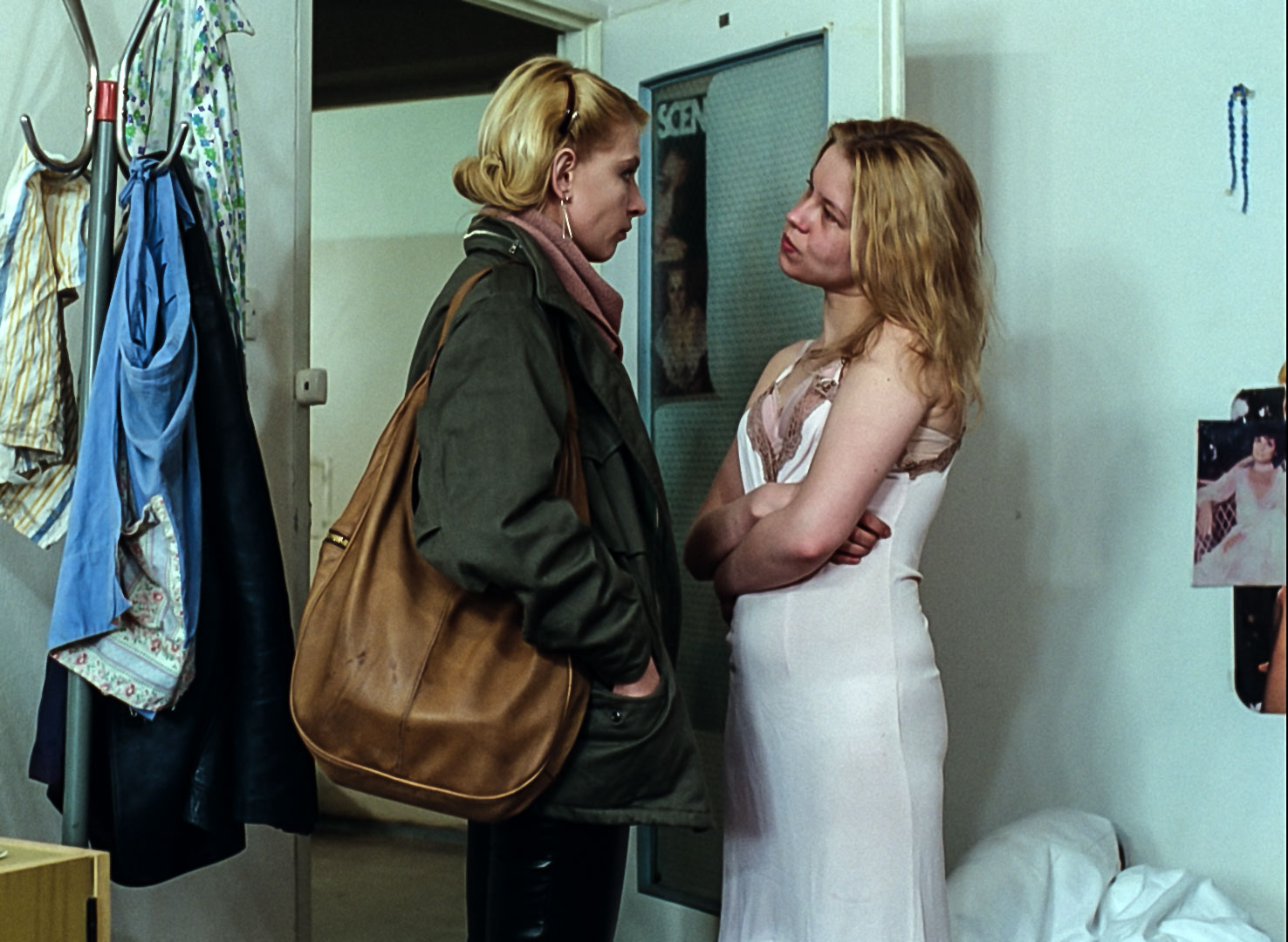
Without Love (1980), dir. Barbara Sass. Image credit: 35mm.online/Documentary and Feature Film Studios (WFDiF)
Ola Jankowska: Anatomy (2021)
Ola Jankowska’s stylish and slow drama is a hypnotic film about identity and grief. Thirty-something Mika (Karolina Kominek) returns to Poland to see her father (Andrzej Poniedzielski), who is in hospital with brain damage. Catching up with old friends in Warsaw, she embarks on a road trip into the past.
Jankowska evokes nostalgia by collaging digital and archival footage, VHS and infrared recordings. Warsaw in grey November is as much a protagonist as Mika’s sensuous body. The city’s melancholic dream world makes Anatomy a memorable study of isolation (the shoot was interrupted by the COVID-19 pandemic).
Helena Lemańska: Letters from Vietnam (1956)
Helena Lemańska’s anti-colonial documentary offers a rare glimpse into communist Vietnam through a Polish lens. It was filmed during January and June 1955, following the First Indochina War and only a few months before the Vietnam War broke out.
Shot for the Polish Film Chronicle, the film comprises a precious collection of “letters” from North Vietnam, including rural Phú Thọ and the capital Hanoi. In turns intimate portrait and socialist realist propaganda reel, Letters from Vietnam was Lemańska’s second documentary from the country.
During their travels, the Polish team meet ex-soldiers, cooperative farmers and a cinema crew touring the villages by foot. Lemańska often finds the ordinary in the exotic, the familiar in the unfamiliar: “Rice in Vietnam is like bread and potatoes in Poland.”
Like at home, the wounds of war are still fresh – both countries are grappling with rebuilding their cities from ruins.
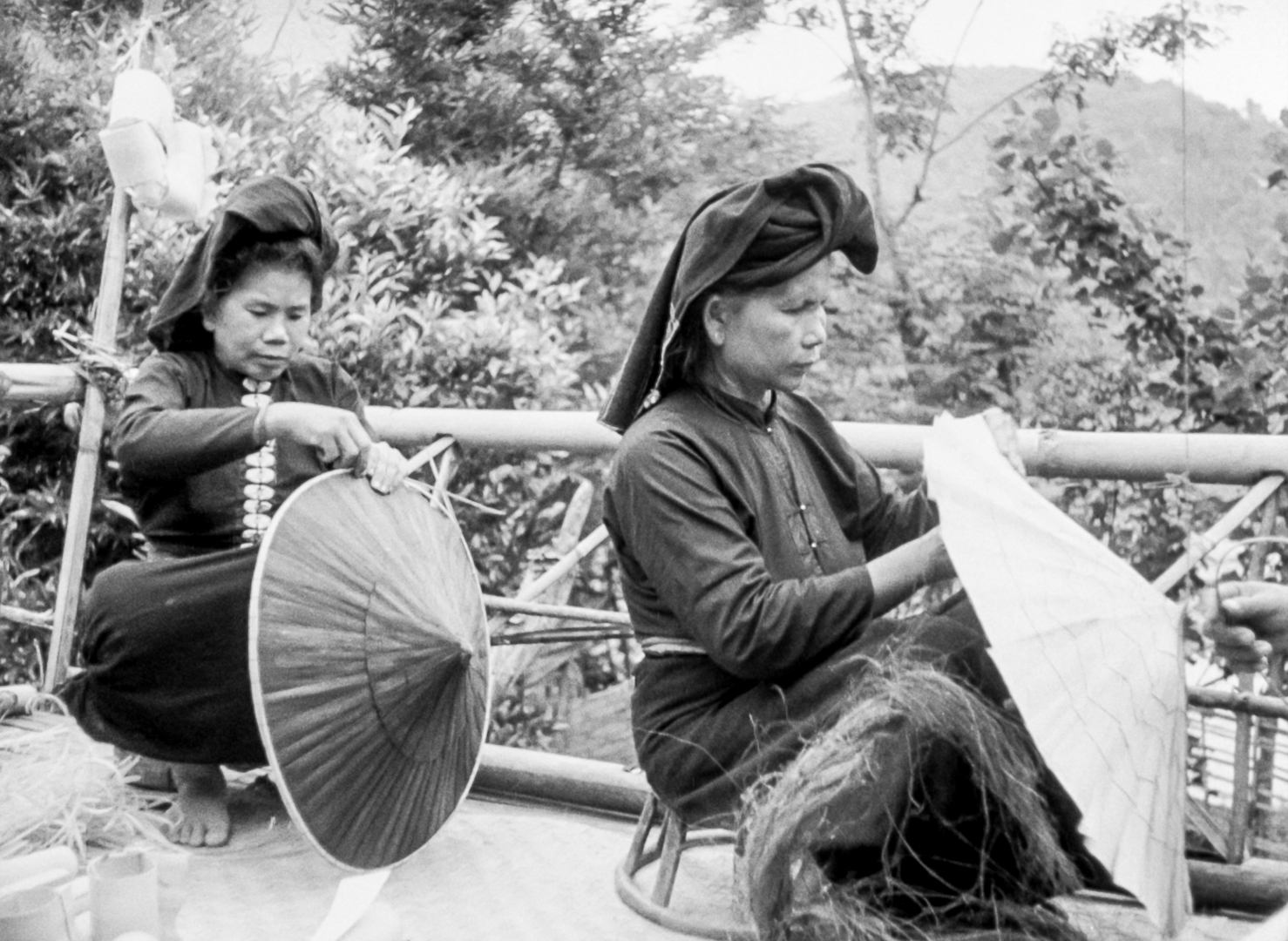
Letters from Vietnam (1956), dir. Helena Lemańska. Image credit: 35mm.online/Documentary and Feature Film Studios (WFDiF)
Małgorzata Szumowska: In the Name Of (2013)
In the Name Of follows closeted, lonely priest Father Adam (Andrzej Chyra), who has been transferred from Warsaw to provincial Masuria. There, he works with troubled teenagers, gaining their respect.
Adam’s faith begins to crumble when he falls in love with the Jesus-like pyromaniac “Dynia” Łukasz (Mateusz Kościukiewicz). He breaks out of his social straitjacket, rebelling against both heteronormativity and the church. A playfully transgressive scene sees him dancing wildly with a painting of the pope.
Małgorzata Szumowska’s biblical tale about sin and punishment offers a sharp commentary on the moral authority of the Roman Catholic church in contemporary Polish society. Where the social order has disintegrated, the church gives stability and promotes conservative values. Subtle, tense and claustrophobic, In the Name Of is a classic of Polish gay cinema.

Notes from Poland is run by a small editorial team and published by an independent, non-profit foundation that is funded through donations from our readers. We cannot do what we do without your support.
Main image credit: Gutek Film
